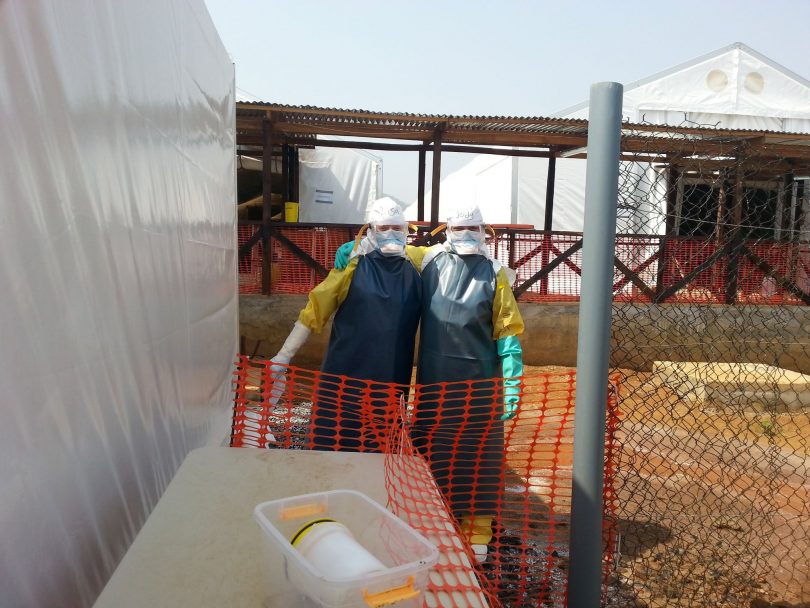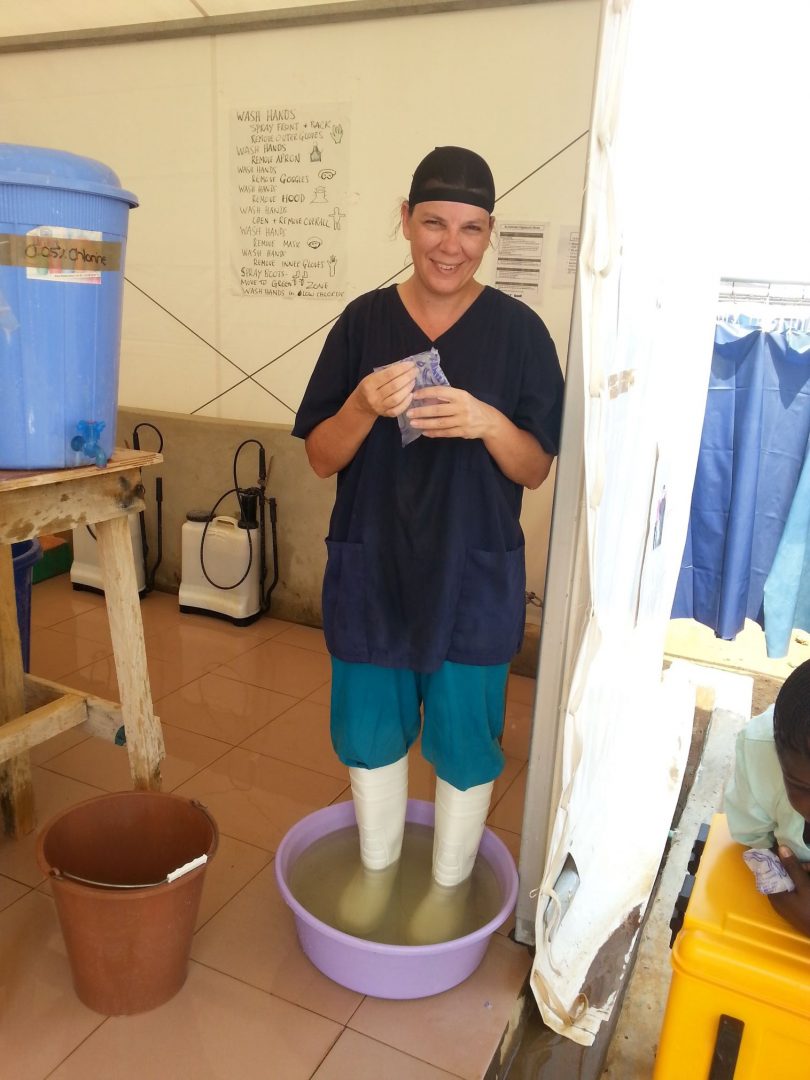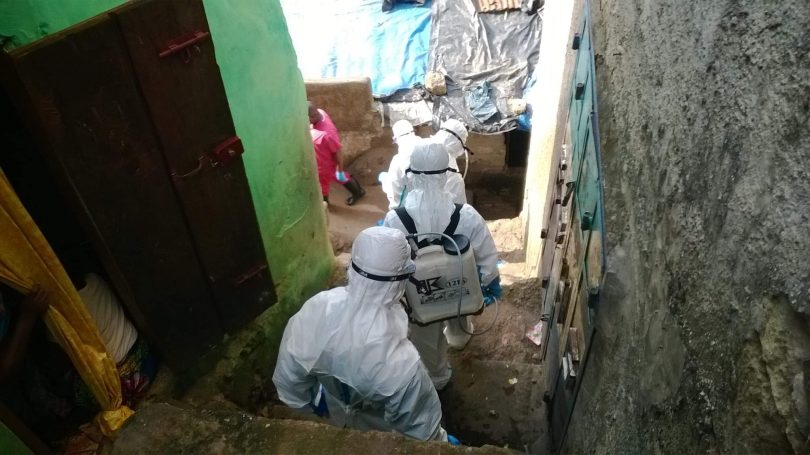
Jody Clouten has worked all over the globe, helping out Ebola patients in Africa during the outbreak. Photo: ACT Health Facebook.
Could you go back to a 9-to-5 job after returning from the frontlines of an Ebola outbreak halfway across the globe?
That’s the challenge that faced environment health officer Jody Clouten after working in countries like Zambia, Sierra Leone and Iraq, with organisations such as Médecins Sans Frontières (MSF) and Aspen Medical.
Jody worked as a technical adviser in Zambia, which involved setting up and maintaining water and sanitation health (WASH) facilities in a hospital setting, before heading to Sierra Leone shortly after returning to Australia, where she risked her own life to treat Ebola victims on the ground.
“I have always had an interest in Ebola, which might sound a bit weird. I was in Zambia when the outbreak in Sierra Leone started, and I was watching the outbreak as it happened,” she said.
“The thing that really sticks in my mind is we had a family group come in, and there were 11 members of the same family, that were confirmed with Ebola. Out of that family, only one managed to survive.
“Within that family group there was a nanny to one of the young girls who died, and we had to go in and do the retrieval of the young girl once she had died. I will never forget that day.”
Jody says although this experience was devastating and will always stay with her, but it also gave her a sense of hope.
“It still upsets me now, seeing the reality of what that disease can do. But at the same time I was amazed at the resilience of the people who wanted to come and work with us,” she said.
“Some of the locals who had seen their own family and friends perish because of the disease still wanted to come and work with us and take that risk to try and save others.”

Jody Clouten was awarded the Humanitarian Overseas Service Medal by the Governor-General last year. Photo: ACT Health Facebook.
Jody was sent to Sierra Leone when she was a part of Aspen Medical. Aspen Medical won the contract to build and staff the 100-bed facility mobile hospital, which can be deployed to remote, challenging and under-resourced environments. It was funded by the Australian Government.
“Once the opportunity came up I jumped at the chance to go and assist. I felt that I had a skill set to help with the outbreak. I have that environmental health background, that sanitation focus, that is a key part of the response to Ebola.
“[I came back because] of matters outside my control. I have a close family member that has a terminal illness and I made a promise to my sister last year that once her health continued to decline that I would not go too far for too long.”
Now working at ACT Health, Jody covers a large policy portfolio, from drugs to poisons to food, and is happy to have a normal job at the moment.
“We work within a regulatory policy team, so we mainly look at internal operational policy within food safety and infection control, pharmacy, things like that,” she said.
“It was a busy four or so years where I was going between contracts overseas and in Australia, so it is nice in some respects to have a Monday to Friday job and do something normal for a while.”
Early in her career, Jody was awarded the Young Environment Health Officer of the Year for her work with the Army in an Aboriginal community in the Kimberly; she was awarded a Humanitarian Overseas Service Medal by the Governor-General last year, but none of her work has been for the recognition.
“There was a turning point doing that work [in the Kimberly]. Not the recognition, but doing that work made me feel really fulfilled.
“I must admit, at first the reality of how big a deal it was [to receive the Humanitarian Medal] did not really sink in until we got the invite to Government House. I was a little bit overwhelmed to be honest, and very honoured, too.
“But to me, the real heroes were the local and national staff we worked with who still came to work every day despite losing others. They are the ones who need recognition because without them we could not do what we did.”

Jody says her work was not for the recognition, and it took a while for it to sink in about how much of a big deal receiving the Humanitarian Medal was. Photo: ACT Health Facebook.
But more overseas work is not totally off the table.
“There is always something happening in the world, and when the time comes and if the opportunity arises and I can do some more of that work, I would certainly like to go back.”












